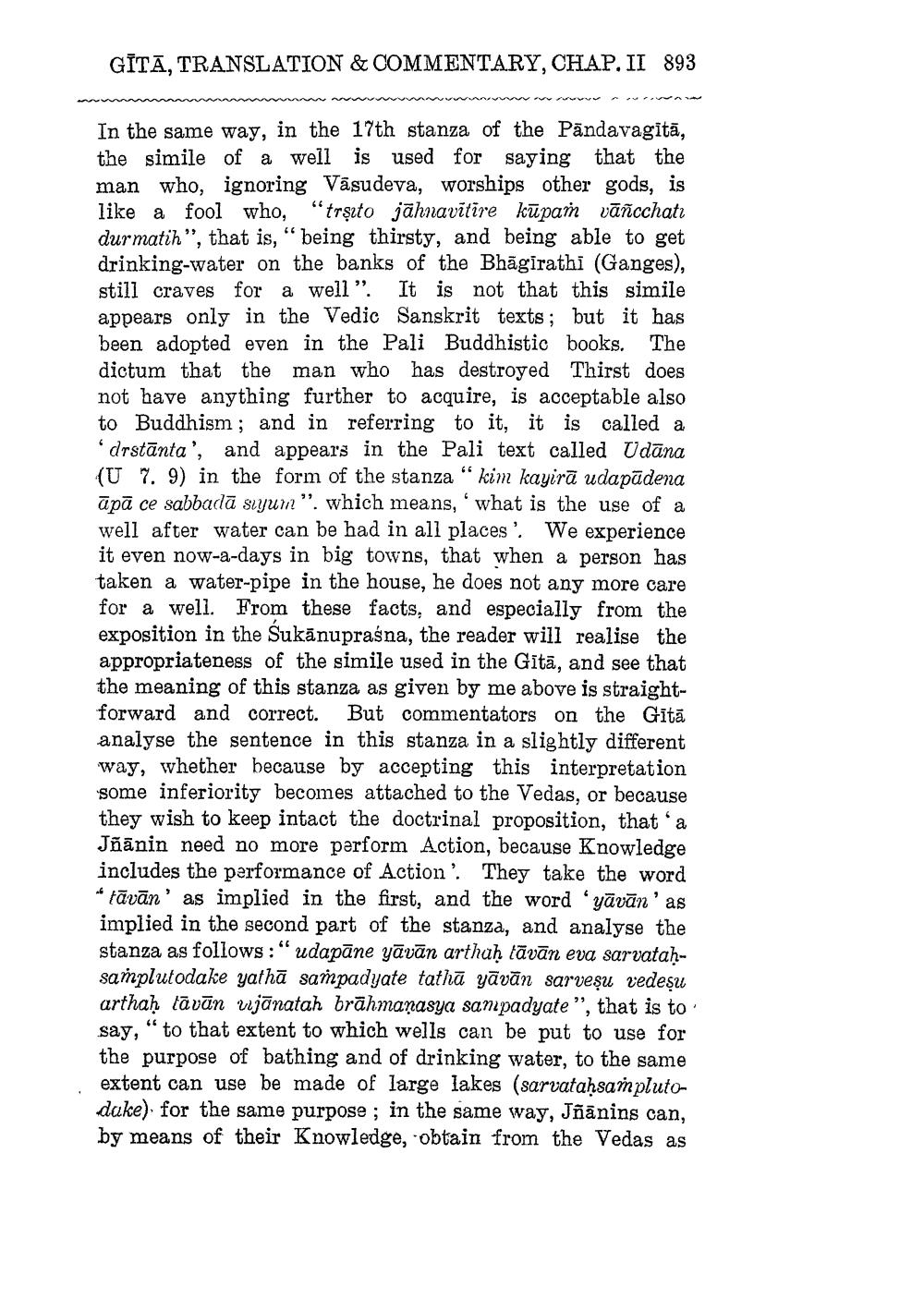________________
GĪTĀ, TRANSLATION & COMMENTARY, CHAP. II 893
In the same way, in the 17th stanza of the Pandavagītā, the simile of a well is used for saying that the man who, ignoring Vasudeva, worships other gods, is like a fool who, "trşito jāhnavitīre kūpam vāñcchati durmatih", that is, “ being thirsty, and being able to get drinking-water on the banks of the Bhāgirathi (Ganges), still craves for a well”. It is not that this simile appears only in the Vedic Sanskrit texts; but it has been adopted even in the Pali Buddhistic books. The dictum that the man who has destroyed Thirst does not have anything further to acquire, is acceptable also to Buddhism ; and in referring to it, it is called a 'drstānta', and appears in the Pali text called Udāna (U 7. 9) in the form of the stanza " kim kayirā udapūdena āpā ce sabbadā suyun". which means, what is the use of a well after water can be had in all places'. We experience it even now-a-days in big towns, that when a person has taken a water-pipe in the house, he does not any more care for a well. From these facts, and especially from the exposition in the Sukānupraśna, the reader will realise the appropriateness of the simile used in the Gītā, and see that the meaning of this stanza as given by me above is straightforward and correct. But commentators on the Gītā analyse the sentence in this stanza in a slightly different way, whether because by accepting this interpretation some inferiority becomes attached to the Vedas, or because they wish to keep intact the doctrinal proposition, that'a Jõānin need no more perform Action, because Knowledge includes the performance of Action'. They take the word ** tāvān' as implied in the first, and the word 'yāvān'as implied in the second part of the stanza, and analyse the stanza as follows:"udapāne yāvān arthaḥ tāvān eva sarvatahsamplutodake yathā saņpadyate tathā yāvān sarveşu vedeşu arthaḥ tāvān ujānatah brāhmaṇasya sampadyate”, that is to say, " to that extent to which wells can be put to use for the purpose of bathing and of drinking water, to the same extent can use be made of large lakes (sarvatahsaplutodake), for the same purpose ; in the same way, Jñānins can, by means of their knowledge, obtain from the Vedas as




